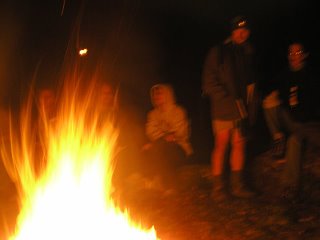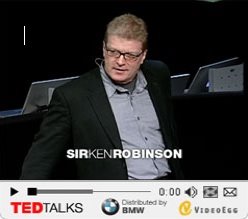

I am a music enthusiast who teaches ESL to graduate students at an art school in San Francisco.
Riddle:
You are on a horse, galloping at a constant speed.
On your right side is a sharp drop off, and on your left side is an elephant traveling at the same speed as you.
Directly in front of you is a galloping kangaroo and your horse is unable to overtake it. Behind you is a lion running at the same speed as you and the Kangaroo.
What must you do to safely get out of this highly dangerous situation?
If you do not know, see answer below.
Riddle Answer:
Get your drunk ass off the Merry-Go-Round
"The city El Tajín was the capital of the Totonac state. Tajín means city or place of thunder in the Totonac language, and is believed to have been one of the names for the Totonac god of thunder, lightning and rain." -- Wikipedia
Dear Director of Awesomeness,
My name is Heyward Gignilliat. I am a candidate for a Master of Arts in Teaching at the School for International Training in Brattleboro, VT.
I recently embarked on an eight-week internship to Veracruz, Mexico, and I would be honored if you bestowed upon me the title of Ambassador of Awesomeness.
I feel I distinguish myself from other applicants because I am ever mindful of the Big Here and the Long Now. If granted this honorary title, I vow to teach, learn, speak, study, listen, laugh, eat, drink, joke, play, surf, spin, skip, jingle, dance, groove, twist, squeeze, drop, flush, climb, win, lose, conquer, smoke, rip, tear, thrash, roar, thrust, finish, slash, and even burn in the name of Awesomeness.
Please consider this application, and I am looking forward to hearing from you in the near future.
Dear Candidate,
After extensive review of your application the selection committee (comprised only of the Director of Awesomeness) would like to honor you by conferring upon you the title of Ambassador of Awesomeness.
It is with great pleasure that this position is filled by such an ambitious candidate in its first conferral as of date. It fills the director with much pleasure that awesomeness will be brought to the people of Veracruz.
Everyone, especially beautiful women, need awesomeness and I trust that you will spread as much of it as possible to Veracruz and the surrounding region. Just be sure to do all that you have said you will... especially groove, squeeze, burn and thrust.


Dear Mrs. Keiko,Just so you know, my teacher asked to borrow the Lips CD and the Giant Leap film!
I hope you are doing well! It's time for me to write you another email for school, so I hope you don't mind. I want to tell you about some of the things I am studying, but I'm worried it might be difficult to understand. If you have any questions, please ask me and I will try my best to answer them. I hope this will be a good learning experience for both of us!
In my Second Language Acquisition (SLA) class, I have been studying about many theories for language teaching. In class, we recently had a very fun assignment to summarize all the various theories from the past 50 years using metaphors. My classmates all presented very interesting metaphors, but I want to share my musical themed presentation with you.In the 1950s & 1960s language learning was characterized by a theory known a Behaviorism. Linguists thought that learning a language was like learning anything else; it's a formation of habits based on stimuli and responses. This is very similar to the "Call & Response" technique we used in Jyushiyama JHS. The teacher is always the center of attention and the students listen and repeat.
The metaphor I used to describe Behaviorism was an album by James Brown. He was a very famous musician in the '60s because people could not take their eyes off him. He was the center of attention and he conducted his band and the audience with call & response techniques.In the 1970s, a linguist named Corder began studying students' errors and a new theory called Error Analysis was born. This theory noted the fact that many errors by students did not originate from their native language. For example, Spanish and English have very similar plural tenses, but Spanish speakers often forget to add the plural marking when speaking English. Linguists could not understand where these kinds of errors were coming from.
To associate the Error Analysis theory I used Led Zeppelin's first album, which has a famous picture of the Hindenburg crashing. To me, aside from the fact that the Hindenburg was a major error in and of itself, Led Zeppelin's music was based on electric blues, but it was full of feedback, and listeners were baffled at where this new genre, dubbed heavy metal, came from.In the 1980s, a linguist named Krashen put forth a theory about comprehensible input. Comprehensible input is defined as "second language input just beyond the learner's current second language competence." This is more commonly referred to as "i + 1." It claims that if a student is studying something too easy or too difficult, it will not be useful for learning, but if the input is slightly higher, the student will be intrigued and want to learn.
This was my favorite metaphor. I used Michael Jackson's "Thriller" album. Michael Jackson was the first pop star in the '80s to take traditional musical input (audio) and add a visual component (video). By adding a new aspect to music, he captured the world's attention and intrigued millions.As language learning moved into the 1990s, a new humanist approach started to take hold. Linguists continued to build upon theories explored in previous decades, but they started looking into more social, cultural, and psychological variables. More emphasis was put on the learners individual characteristics like motivation, personality, and personal learning style.
To capture this refined humanist approach, I used a CD by a band called the Flaming Lips. Their album "The Soft Bulletin" was a symphonic pop album created by modern technology melding synthesizers with guitars to make blissful melodies. All the while, the humanity of the album comes through loud and clear because the lyrics are about basic human emotions like love and loss and the beauty of life.Now in the 21st century, my teacher says, "we're wearing a lot of hats." Linguists tend not to adhere to any one specific theory, but to a multitude of possible approaches centered around the learner.
To represent this all-encompassing idea, I brought a DVD called "1 Giant Leap." I used this because it's a fusion of all kinds of music from all over the world, spoken word, and very powerful visual imagery. It's presented in a surround sound mix for home theaters, so the listener really is encompassed!
I hope this was informative for you, and I look forward to reading your response. Again, if you have any questions, please feel free to ask me.
Take care,
heyhey


Why I Burned My Pants (And Danced)Over the past few weeks, I conducted a social experiment on the campus of SIT called "Burn Your Pants & Dance." I advocated students burn their pants at a bonfire party, and now, after a few days of reflection, I want to explain why.
I love SIT; I love the various people. I revel in the diversity and knowing that this campus and its myriad of personalities have the potential to make a deep positive impact on the world. This idea alone helps me wake up for my 8:30am classes.
With that said, I feel it is necessary to address an underlying aspect of our campus. Everyday we send emails to inform about various religious holidays, sexual orientation parties, and immigration action meetings. These are all very serious topics. In some parts of the world these are a hotbed of discussion that create major turmoil and it’s just the stuff piling up day-to-day in our email Inbox! This is the reality we live in at SIT.
In an effort to combat the level of daily seriousness, lighten the mood, bring some kind of balance to our campus, and shed the proverbial PC layer that keeps building up, I sent, what I thought, was a humorous email. I advocated that everyone burn their pants at the next bonfire party. Burning pants, to my knowledge, does not infringe on anyone's religious beliefs, sexual orientation, nor does it have anything to do with immigration. It simply targets the opposite end of the contextual spectrum, and if you feel so inclined, it could be seen as a symbolic gesture.
The reactions from campus I received for doing this ridiculous thing are very interesting to me, and I actually feel I learned a lot about diversity and acceptance. I can separate the responses into three contrasting categories that I call the Partiers, the Questioners, and the Silencers. The Partiers' reaction was the most entertaining to me. They just laughed at me, gave me high fives for doing something silly, pointed and yelled in unquestioning solidarity "Burn your pants!"
The reaction of the Questioners was a little more interesting to me. They laughingly approached me and asked, "You want me to do what!?" "Why do you want me to burn my pants?" To them, I tried to explain the idea of a group of people working towards world peace standing around a bonfire in their underwear seems like a hilarious concept, and one I want to put into action because of the novelty. Can you imagine sitting in a conflict transformation class, looking over at your classmates during an intense debate, and realizing they were standing around in the cold in their underwear with you last week? It would have to put a different perspective on things, not to mention the bonds and the memories that would be formed by doing something so simple.
A slightly different, but frequent, response I heard from the Questioners was, "I like my pants, and I don't have any pants to burn," or, "I would rather donate my pants to the homeless." For this, I suggested they go to a thrift store, donate to the local economy, and buy a pair of pants that expressed who they were, or a pair they felt was begging to be burned because of the hideousness of the pattern. To me, this made sound sense.
The third and final reaction, from the Silencers, was one I least expected, but one that assisted my learning the most. I categorize this response as peoples' total silence or aloofness to my absurd request. I could overhear the Silencers whispering at lunch tables, "I can’t believe he did that. It’s completely inappropriate." The most hurtful response I heard came straight to my face. A person looked me in the eye and bluntly said, "I don’t get you." I do not know what that person meant, but it felt like they were trying to distance themself from me because they didn't understand where I was coming from. This reaction was most surprising because I didn't expect it on SIT's campus.
The heaviness of these reactions hit me like a lightning bolt as I was standing around under the stars in my underwear. If I got reactions like this from people on our campus for making and following through on a preposterous request about burning pants at a party, I can not imagine the reactions that someone might get for making serious statements they wholeheartedly believe in that might not fit with our societal norms.
Of all the places in the world that can benefit from political incorrectness, it is SIT. Our mission is world peace, but how can we work towards such a goal if we continue to shroud our language and actions in a polite, but lifeless, manner because we fear we might be misunderstood? I think we need to expose ourselves to draw out feelings that might be deemed incorrect, so we can look at them objectively, and analyze why we feel that way.
Bob Dylan once sang, "You’re invisible now, you got too many secrets to conceal." Only when we open up our secrets, speak, and act from the heart, will it be possible to see the true differences between everyone on this campus. When that happens, we can start learning how to approach the real problems that arise, and take what we learn away from this tiny microcosm on a hilltop in Vermont and apply it to the rest of the world.

* driving one hour west to Bennington College with four friends in total silence because everyone was staring out the window at the Fruit Loop Mountains
* going to an apple pie festival in Dummerston to find all the apple pies were sold out due to an influx of Harley Davidson riders, so we decided to go for a drive on a few dirt roads; got lost, found Dummerston, got lost again, found Dummerston again, got lost again!, found hot apple pie, then found Brattleboro
* having Stiles come up for a few days driving a rented PT Cruiser with a red dash board and knowing he was in Brattleboro a whole ten minutes before buying a Neil Young LP
* going to Marlboro College for a soccer game; arriving an hour early to warm up, and actually seeing people play Quidditch, from the Harry Potter books, for real!

Dear Mrs. Keiko,If anyone finds this the least bit interesting, please leave a comment because I can use it in my classes.
Long time no see! How are you? Is everything okay at Jyushiyama JHS?
Recently, I have been very busy with graduate school, and I have a homework assignment to write to a colleague about my studies, so I thought it would be a great idea to tell you a little bit about what I'm learning here.
For the past month, my new classmates and I have been getting to know each other and our new surroundings. During school orientation, we played many fun games like: 60 people lining up in alphabetical order without talking! This was a fantastic activity because everyone learned each other’s names while having fun. We also cooked dinner together and went contra dancing! This was great because we had to take responsibility for each other and work together while learning about local culture.
This school puts a lot of emphasis on group work and reflection, so we have been given many group projects. For example, my first group project was to find information about local restaurants and display our findings on a bulletin board for other students. I learned many things about my new town and I got to share the information with others.
The first two weeks of class were very interesting too! I had two classes: Shock Language and Second Language Acquisition (SLA). Shock Language class was very thought provoking because I had to study a language I’ve never spoken before. I learned Korean! It was easy for me because the grammar rules are similar to Japanese, and my teacher was great! She used many games and activities to make the class fun; I learned what it feels like to be in a language class as a student.
My SLA class is much more difficult because I’m studying about language teaching theories. I’m reading about famous linguists like Chomsky, Krashen, Swain, and Vygotsky who changed the way education systems teach languages. Also, there are a lot of new vocabulary terms I have to know, but my teacher is very good and lets me ask lots of questions.
Just recently, I began three new classes: Approaches (a class where I have to analyze myself and my teaching techniques), Four Skills (a class where I learn how to incorporate speaking, listening, reading, and writing into to my own classes), and Language Analysis & Lesson Planning (a class where I study about English grammar and making lesson plans). These classes are new to me, so I can’t write about them yet, but I want to share them with you when I learn more.
I hope you are doing well, and please tell all the students at Jyushiyama JHS I said hello.
Take care,
heyhey


 This is a tip of the hat to my buddy Richard and the rest of the promotion staff for organizing this music festival and a wag of the finger to anybody in Japan that doesn't go.
This is a tip of the hat to my buddy Richard and the rest of the promotion staff for organizing this music festival and a wag of the finger to anybody in Japan that doesn't go. First stop was New York City. I met my friend Daniel, who was fittingly wearing a T-shirt sporting a "100% Organic" logo. Daniel, to me fits the bill as a true activist, and I draw a lot of energy from my meetings with him. This time was no exception.
First stop was New York City. I met my friend Daniel, who was fittingly wearing a T-shirt sporting a "100% Organic" logo. Daniel, to me fits the bill as a true activist, and I draw a lot of energy from my meetings with him. This time was no exception.








 TED Blog: Sir Ken Robinson on TEDTalks
TED Blog: Sir Ken Robinson on TEDTalks



 My good friend Tiffany recently returned to Japan from France. She made a surprise appearance at the Heiwa Matsuri last week by sneaking up behind me and giving me a big hug.
My good friend Tiffany recently returned to Japan from France. She made a surprise appearance at the Heiwa Matsuri last week by sneaking up behind me and giving me a big hug. allmusic ((( Living with War > Overview )))
allmusic ((( Living with War > Overview )))





 or
or 
 BBC NEWS | Entertainment | Simpsons film confirmed for 2007
BBC NEWS | Entertainment | Simpsons film confirmed for 2007